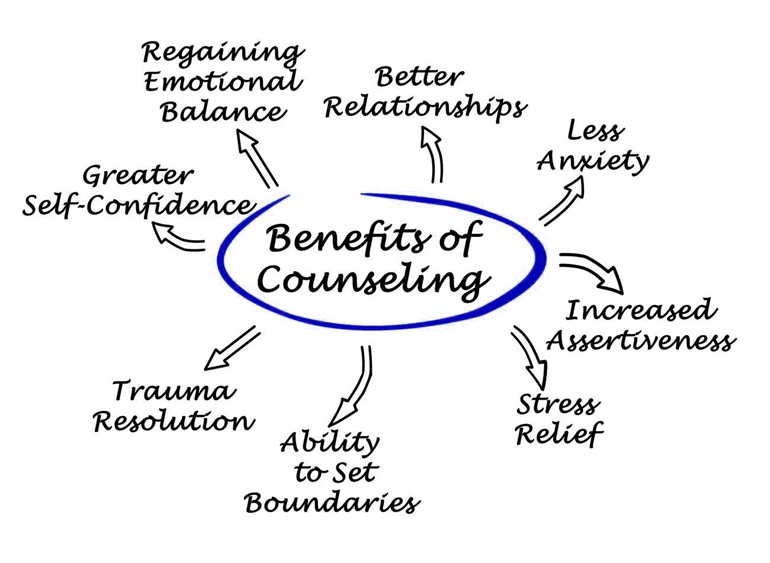Checking out the Advantages of Psychological Treatment for Teen Well-Being and Development
Psychological therapy plays a crucial duty in the well-being and growth of young adults. Adolescence is a turbulent period noted by emotional and social difficulties. Therapy provides an organized atmosphere for teens to articulate their feelings and challenge their struggles. It outfits them with vital tools for resilience and communication. As they navigate this developmental phase, the effect of treatment can be profound. What particular advantages can emerge from such assistance during these developmental years?

Recognizing the Teen Mind: Difficulties and Stress
As teens navigate the complexities of their developmental stage, they encounter numerous obstacles and pressures that can substantially impact their psychological health. This duration is marked by considerable physical, emotional, and social modifications, which can cause feelings of confusion and unpredictability. Peer influence escalates, commonly resulting in a battle for acceptance and identification. Academic expectations can create added stress and anxiety, as the pressure to excel mounts in a progressively affordable atmosphere.
The arrival of social media introduces a brand-new layer of complexity, where contrasts to curated online personalities can aggravate sensations of insufficiency and anxiousness. These variables can cause psychological distress, consisting of anxiousness, anxiety, and low self-worth. Understanding these challenges is crucial for moms and dads, teachers, and mental health and wellness professionals, as it gives understanding into the adolescent experience and highlights the demand for encouraging interventions to cultivate resilience and well-being during this crucial developmental phase.
Producing a Safe Space for Expression
Producing a secure area for expression is essential for teens maneuvering their tumultuous developing phase. In therapeutic settings, this environment promotes open dialogue, permitting teenagers to connect their feelings without worry of judgment. Such spaces allow them to explore their emotions and thoughts, which is vital for recognizing their identifications and experiences.
When adolescents really feel protected, they are more most likely to share their battles, including anxiety, clinical depression, or interpersonal problems. This open communication can result in much deeper understandings and help with individual development.
A risk-free space urges imagination and self-reflection, offering teens the freedom to share themselves via different outlets, such as art or writing. Establishing count on between the therapist and the teenage is crucial, as it underpins the efficiency of the healing procedure. Inevitably, producing a risk-free room for expression acts as a structure for psychological recovery and individual growth during these formative years.
Establishing Coping Approaches and Strength

Therapists typically introduce strategies such as mindfulness, journaling, and analytical skills, allowing teenagers to handle their reactions better. Additionally, by participating in role-play scenarios, they exercise exactly how to manage difficult scenarios, reinforcing their self-confidence. With time, these skills promote a sense of firm, gearing up teens with the devices to browse life's uncertainties. The development of durability not just aids in getting over immediate difficulties however likewise prepares for much healthier emotional actions in the adult years, inevitably adding to long-lasting wellness.
Enhancing Interaction Abilities
Effective interaction abilities are necessary for teenagers as they navigate intricate social landscapes. Mental therapy plays a vital role in enhancing these abilities, permitting teens to express their emotions and thoughts much more clearly. Via assisted sessions, specialists urge teens to express their sensations, helping with better understanding in peer interactions and family members dynamics.
Therapy gives a risk-free area for exercising active listening, empathy, and assertiveness. These skills equip teens to participate in purposeful conversations, resolve problems, and build more powerful connections. As they find out to connect effectively, they also obtain self-confidence in their ability to promote for themselves and their demands.
Additionally, improved interaction abilities add to psychological intelligence, enabling teenagers to identify and react to the emotions of others. This all natural advancement promotes a helpful setting, inevitably promoting overall wellness and social combination. Via mental therapy, young adults can grow web these crucial skills read this for a healthier social experience.
Promoting Individual Growth and Self-Discovery
Cultivating personal development and self-discovery in teenagers involves a multifaceted method that urges understanding of individuality. This procedure likewise highlights the importance of building resilience skills and improving psychological recognition. Together, these components develop a foundation for healthier, extra positive individuals as they navigate their developmental years.
Understanding Individual Identity
Exactly how do teens browse the complicated landscape of individuality as they seek for self-discovery and development? Throughout this formative duration, they face various impacts, including peers, household, and social assumptions. Mental treatment can act as a vital tool, offering a risk-free space for expedition and reflection. Via guided conversations, teenagers can express their ideas and feelings, allowing them to comprehend their wishes, values, and beliefs. This procedure cultivates a much deeper understanding of their unique identity, encouraging them to make enlightened options and develop a sense of function. As they participate in self-discovery, they find out to accept their individuality and navigate difficulties with higher quality, inevitably boosting their general wellness and personal growth.
Structure Resilience Abilities

Enhancing Psychological Awareness
Enhancing psychological awareness is essential for young adults steering the intricacies of teenage years, as it permits them to identify and comprehend their feelings better. By taking part in psychological therapy, teenagers discover to recognize their emotional responses and the triggers behind them. This procedure promotes personal growth and self-discovery, allowing them to articulate their feelings and handle challenges more adeptly. As teens develop emotional recognition, they cultivate compassion, improve relationships, and enhance communication skills. Furthermore, this increased recognition aids in decision-making, aiding them navigate public opinions and establish a feeling of identity. Ultimately, fostering psychological understanding through treatment can lead to healthier coping mechanisms and read the full info here a much more well balanced emotional state, fundamental for flourishing during these developmental years.
Building Healthy Relationships and Support Solutions
While passing through the complexities of adolescence, building healthy and balanced partnerships and support group is essential for young adults. These links provide emotional security and a sense of belonging, crucial throughout this developmental phase. Positive relationships with peers, family, and mentors can boost self-worth and durability, making it possible for teens to browse challenges better.
Mental therapy plays a crucial role in cultivating these connections by equipping teens with interaction and conflict-resolution abilities. Through treatment, they learn to share their sensations, comprehend various perspectives, and develop boundaries, which are essential for keeping healthy interactions.
Helpful networks urge young adults to seek help when required, minimizing isolation and advertising psychological wellness. They are a lot more most likely to involve in useful actions and make informed choices when adolescents really feel connected to their assistance systems (Individual Therapy Toronto). Overall, the cultivation of healthy connections and support group is instrumental in advertising teenage health and personal growth
Often Asked Inquiries
Exactly how Do I Find a Qualified Therapist for My Teenager?
To find a certified therapist for a teenager, one should look for suggestions from health care service providers, study qualifications on-line, examine reviews, and establish the specialist focuses on adolescent concerns, cultivating a supportive environment for growth.
What Are the Prices Associated With Mental Treatment for Teenagers?
The costs associated with psychological therapy for teens vary extensively, usually ranging from $50 to $250 per session. Insurance insurance coverage, sliding scale fees, and neighborhood resources can affect price and ease of access for households seeking assistance.
How Frequently Should Teenagers Go To Therapy Sessions?
Teens need to ideally go to treatment sessions once a week or biweekly, depending upon individual needs. Consistent sessions can promote a risk-free area for expression, while enabling specialists to monitor progress and readjust strategies properly with time.
Can Treatment Work for All Teens?
Treatment can be reliable for several teenagers, however private results differ. Factors such as personal scenarios, openness to the process, and the restorative approach utilized all affect its efficiency for each teen.
What Should Parents Do Throughout Their Teen's Treatment Process?
Moms and dads must proactively support their young adult's therapy process by keeping open communication, appreciating discretion, attending sessions if invited, and urging their youngster's efforts (Individual Counselling Services). Recognizing and perseverance are essential as teens navigate their personal growth journey
Mental treatment plays an essential function in the well-being and growth of teens. By engaging in psychological therapy, teens discover to identify their emotional responses and the triggers behind them. Mental treatment plays a critical duty in cultivating these partnerships by gearing up teenagers with interaction and conflict-resolution abilities. Teens should preferably participate in therapy sessions weekly or biweekly, depending on specific demands. Moms and dads must proactively sustain their teen's treatment procedure by keeping open interaction, valuing privacy, participating in sessions if invited, and urging their child's initiatives.